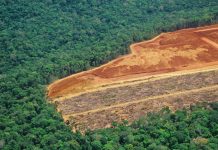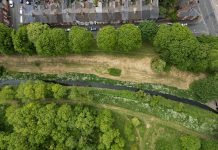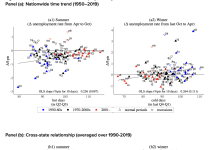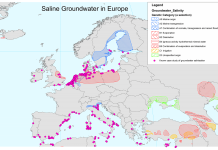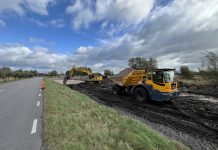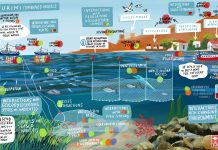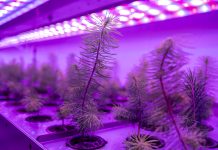Open Access Government produces compelling and informative news, publications, eBooks, and academic research articles for the public and private sector looking at health, diseases & conditions, workplace, research & innovation, digital transformation, government policy, environment, agriculture, energy, transport and more.
Home 2026
Archives
Precycling: Waste to plastics resource pathways
The PRecycling project aims to recover high-quality polymeric materials from underutilized plastic waste streams, focusing on developing near-production-scale recycling processes to transform plastic waste into secondary raw materials, and enabling up to 100% recycled content incorporation in new products.
Does size matter? Guiding deforestation to mitigate Amazonian tipping cascades
The Amazon, a critical global climate tipping element, faces destruction due to land transformation. Research by University of Hamburg and iES Landau investigates whether the size and pattern of deforestation matters, suggesting that guiding clearing can mitigate severe regional climate impacts.
From lecture halls to living labs: Tackling biodiversity loss through nature-based solutions
Learn how to empower higher education and vocational training to address biodiversity loss through Nature-Based Solutions.
Two worlds, one test: Climate leadership after Belém
Professor Richard Beardsworth analyses climate leadership after Belém, focusing on managing the fossil fuel transition beyond COP30.
Local governments in Europe play a crucial role in achieving climate neutrality
Alina Safronova at the Institute of Energy Systems and Environment, Riga Technical University, examines how local governments in Europe are one of the most important driving forces on the path to climate neutrality.
Global warming fuels unemployment rate in summer
Masahiro Yoshida from Waseda University’s Department of Political Science and Economics finds that global warming raises summertime unemployment.
Studying the environmental impact of nanoplastics: Strategies and limitations
Understanding the environmental impact of nanoplastics is complex and requires the development of robust and standardised laboratory tests, which are essential for assessing their effects on broader, real-world scales, Monica Passananti explains.
Charting the technical landscape of marine carbon dioxide removal
Dr Nils Thonemann and Mona Delval from the University of Leiden consider the scientific and technical requirements for effective evaluation of emerging marine carbon dioxide removal (mCDR) approaches.
Overcoming barriers for efficient dialogue between research and practice
As climate and biodiversity crises grow more complex, productive exchange between researchers, practitioners and policymakers becomes crucial. This article outlines the hurdles to efficient dialogue and the approaches that can help build trust, shared understanding and real-world impact.
Salinization of coastal groundwaters in the EU – What can we do about it?
Written as part of the LIFE-FRESHMAN project, this article examines the issue of coastal groundwater salinization in the EU, particularly its impact on freshwater reserves, and highlights key strategies for mitigation.
The benefits of harvest residue and vegetation control on conifer seedling survival and growth
Mark Kimsey, the Director of the Intermountain Forestry Cooperative, discusses the benefits of harvest residue and vegetation control on conifer seedling survival and growth.
Can stem cells aid coral reef recovery?
Shani Talice and Benyamin Rosental from Ben Gurion University of the Negev explore how stem cells could help corals recover from stress and environmental damage, addressing the urgent threats of climate change, pollution, and disease to coral reefs.
Sudbury peatland restoration from metal pollution
Professor Pete Whittington discusses efforts to restore metal-contaminated peatlands in Sudbury, Ontario, which were heavily affected by mining since the 1880s.
Vellinge reinvents flood protection with nature-based innovation
Nature meets engineering in Vellinge’s innovative flood defence, setting a new standard for sustainable coastal protection, Anders Purcell, Project Manager at Vellinge Municipality explains.
Rare earth, critical minerals, and bio-molecules: Centering African IPLCs in the new resource economy
Dr. Metolo Foyet, Conservation Equity & Safeguards Specialist at The Nature Conservancy, highlights the intersections of critical minerals, biodiversity, and Indigenous rights in the global green transition.
Canada’s critical minerals research in building its future economy
Mostafa Fayek, Distinguished Professor at the University of Manitoba, discusses the significance of critical minerals (CMs) in modern technology and national security, highlighting their essential role in Canada’s economy and energy transition.
Unlocking global climate finance: Governments must champion carbon markets
While governments worldwide are stepping up to support voluntary carbon markets, now is the time to scale climate finance with integrity and impact, Chris Duck from Climate Impact Partners argues.
SURIMI: Pioneering sustainable fisheries management via EU DTO
Patrycja Antosz, the Research Director of the Center for Modeling Social Systems in NORCE Research AS, shares details of the SURIMI project, part of the European Digital Twin of the Ocean (EU DTO) initiative, aiming to enhance sustainable fisheries management.
Forest management in an uncertain future: The role of tree diversity
Prof Dr Andreas Rigling and Dr Valentina Vitali highlight the importance of tree diversity for enhancing forest resilience in an uncertain future.
Proving the power of biochar beyond net zero
Concerning proving the power of biochar beyond net zero, Alastair Collier, Chief R&D Officer, and Dr Sally Wilkinson, Lead Scientist at A Healthier Earth, provide insight.


